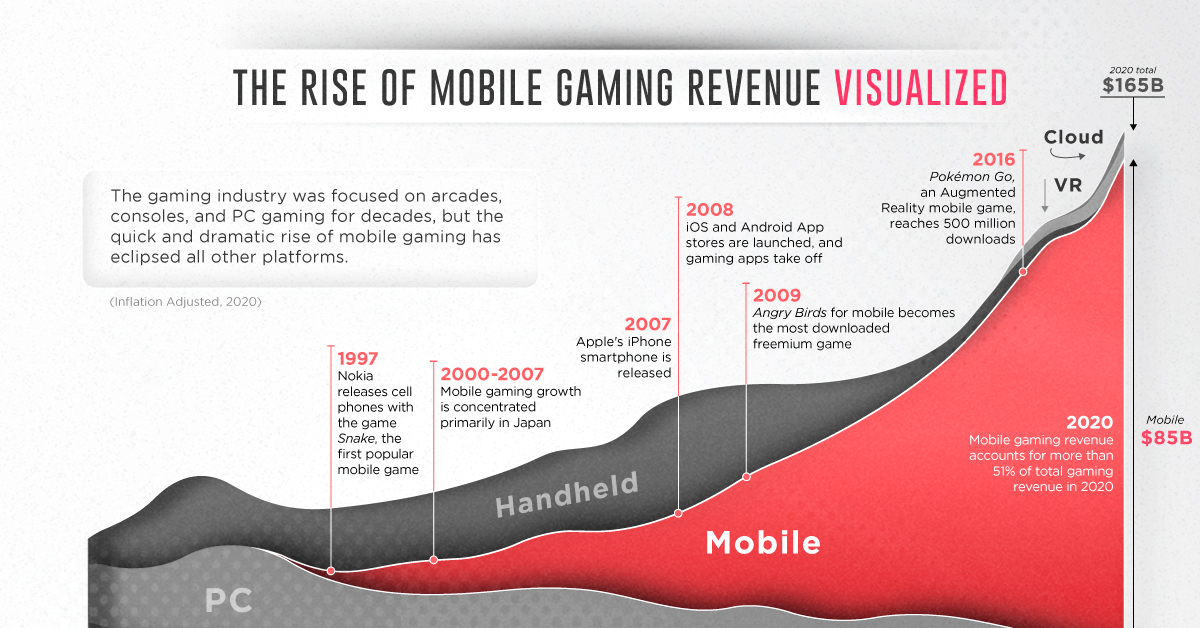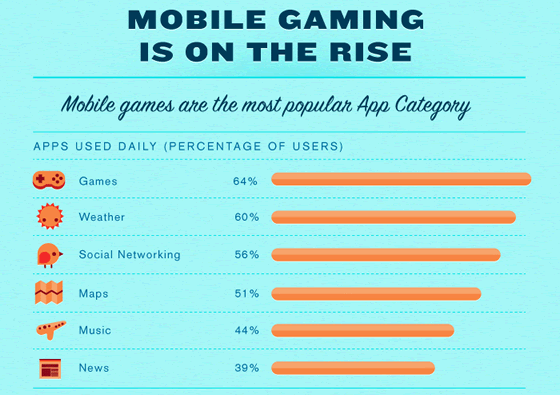The Rise of Mobile Gaming: How Phone Apps Revolutionized the Landscape
Related Articles: The Rise of Mobile Gaming: How Phone Apps Revolutionized the Landscape
Introduction
With enthusiasm, let’s navigate through the intriguing topic related to The Rise of Mobile Gaming: How Phone Apps Revolutionized the Landscape. Let’s weave interesting information and offer fresh perspectives to the readers.
Table of Content
The Rise of Mobile Gaming: How Phone Apps Revolutionized the Landscape

The year 2000 marked a pivotal moment in the gaming industry. While console and PC games dominated the market, a quiet revolution was brewing on a smaller scale: the rise of mobile gaming. This revolution wasn’t driven by bulky handheld consoles, but by the burgeoning power of smartphones and the emergence of app stores. These platforms provided a fertile ground for developers to create and distribute games directly to a vast audience, fundamentally altering the gaming landscape.
The Evolution of Mobile Gaming: From Simple Games to Complex Experiences
The early days of mobile gaming were characterized by simple, bite-sized experiences. Games like Snake, Tetris, and Pac-Man, previously confined to dedicated handheld devices, found new life on the mobile platform. These games, while rudimentary in their design, captured the imagination of millions, demonstrating the potential of mobile gaming.
However, the limitations of early smartphones restricted the complexity of these games. Limited processing power, small screens, and restrictive input methods posed significant challenges for developers. This changed with the advent of more powerful smartphones and the development of sophisticated touch controls. Developers began to explore new genres and gameplay mechanics, pushing the boundaries of what was possible on a mobile device.
App Stores: The Catalyst for Growth
The introduction of app stores, like Apple’s App Store and Google Play, acted as a catalyst for the growth of mobile gaming. These platforms provided a centralized marketplace for developers to distribute their games, making them easily accessible to a global audience. The accessibility of these platforms, coupled with the ease of downloading and installing games, fueled the popularity of mobile gaming.
The Appeal of Mobile Games: Accessibility and Convenience
Mobile games offered several advantages over their console and PC counterparts. The inherent accessibility of smartphones, coupled with the convenience of playing games anywhere and anytime, made mobile gaming an attractive option for a wide range of players. This accessibility attracted a diverse audience, including casual gamers who might not have previously considered themselves "gamers."
The Shift in Focus: From Consoles to Smartphones
The success of mobile gaming was undeniable. Developers and publishers began to recognize the potential of this burgeoning market. Major studios, previously focused on console and PC games, shifted their attention to mobile platforms. They invested resources in developing high-quality mobile games, attracting millions of players and generating significant revenue.
The Impact of Mobile Gaming: A Transformation of the Industry
The impact of mobile gaming extended beyond simply adding another platform to the gaming landscape. It fundamentally changed the industry in several ways:
- Democratization of Game Development: Mobile platforms lowered the barrier to entry for game development. Developers with limited resources could create and distribute their games, reaching a global audience. This democratization fostered innovation and creativity, leading to a surge in independent game development.
- Emergence of New Genres and Gameplay Mechanics: Mobile gaming fostered the creation of new genres and gameplay mechanics tailored to the unique characteristics of touchscreens. Games like "Clash of Clans" and "Candy Crush Saga" redefined the concept of mobile gaming, introducing elements of strategy, social interaction, and microtransactions.
- Shifting Consumer Behavior: Mobile gaming changed consumer behavior. Players became accustomed to short, bite-sized gaming sessions, often integrated into their daily routines. This shift in consumption patterns influenced the development of games designed for frequent, short-duration play.
- Increased Revenue Generation: Mobile gaming became a major revenue generator, surpassing console and PC gaming in terms of revenue. The free-to-play model, coupled with in-app purchases, proved highly successful, attracting a large player base and generating significant revenue for developers.
The Future of Mobile Gaming: Continued Growth and Innovation
The mobile gaming industry continues to evolve, driven by technological advancements and changing consumer preferences. The introduction of cloud gaming services and the development of powerful mobile devices with enhanced graphics capabilities are pushing the boundaries of what is possible on a mobile platform.
FAQs about Mobile Gaming
1. What are the most popular mobile game genres?
Mobile gaming encompasses a wide range of genres, with some of the most popular including:
- Action: Fast-paced games that emphasize reflexes and skill, often involving shooting, combat, or platforming.
- Puzzle: Games that require logical thinking and problem-solving, often involving matching tiles, solving riddles, or navigating mazes.
- Strategy: Games that involve planning, resource management, and tactical decision-making, often featuring base-building, real-time combat, or turn-based gameplay.
- Role-Playing: Games that allow players to create and customize characters, exploring immersive worlds and completing quests.
- Sports: Games that simulate real-world sports, allowing players to compete in various disciplines.
2. How do mobile games generate revenue?
Mobile games employ several monetization strategies, including:
- Free-to-Play: Games are offered for free but offer in-app purchases for cosmetic items, power-ups, or premium content.
- Subscription-Based: Players pay a monthly or annual fee to access premium content, features, or exclusive benefits.
- In-App Advertising: Games display ads to generate revenue, offering players the option to remove ads through in-app purchases.
- Pay-to-Play: Games are purchased upfront, with no additional in-app purchases required.
3. What are the benefits of mobile gaming?
Mobile gaming offers several benefits, including:
- Accessibility: Games can be played anywhere and anytime, making them easily accessible to a wide audience.
- Convenience: Games can be downloaded and installed quickly, with no need for complex setup or configuration.
- Affordability: Many mobile games are free to play, with optional in-app purchases, making them accessible to players with different budgets.
- Social Interaction: Many mobile games feature social elements, allowing players to connect and compete with friends or other players worldwide.
- Cognitive Benefits: Some mobile games can enhance cognitive skills, such as problem-solving, memory, and spatial reasoning.
Tips for Mobile Gaming
- Set a Budget: Determine how much you are willing to spend on in-app purchases and stick to your limit.
- Choose Games Wisely: Research games before downloading them, considering their genre, gameplay mechanics, and user reviews.
- Take Breaks: Avoid excessive gaming sessions and ensure you take breaks to rest your eyes and avoid fatigue.
- Be Aware of In-App Purchases: Pay attention to in-app purchase options and avoid impulsive spending.
- Protect Your Data: Choose reputable developers and ensure you understand the game’s privacy policy before providing personal information.
Conclusion
The rise of mobile gaming has been a remarkable journey. From simple, rudimentary games to complex, immersive experiences, mobile gaming has transformed the industry, attracting a global audience and generating significant revenue. The future of mobile gaming looks bright, driven by technological advancements and the continued innovation of developers. As smartphones continue to evolve and become more powerful, mobile gaming will undoubtedly continue to play a pivotal role in the entertainment landscape.








Closure
Thus, we hope this article has provided valuable insights into The Rise of Mobile Gaming: How Phone Apps Revolutionized the Landscape. We hope you find this article informative and beneficial. See you in our next article!